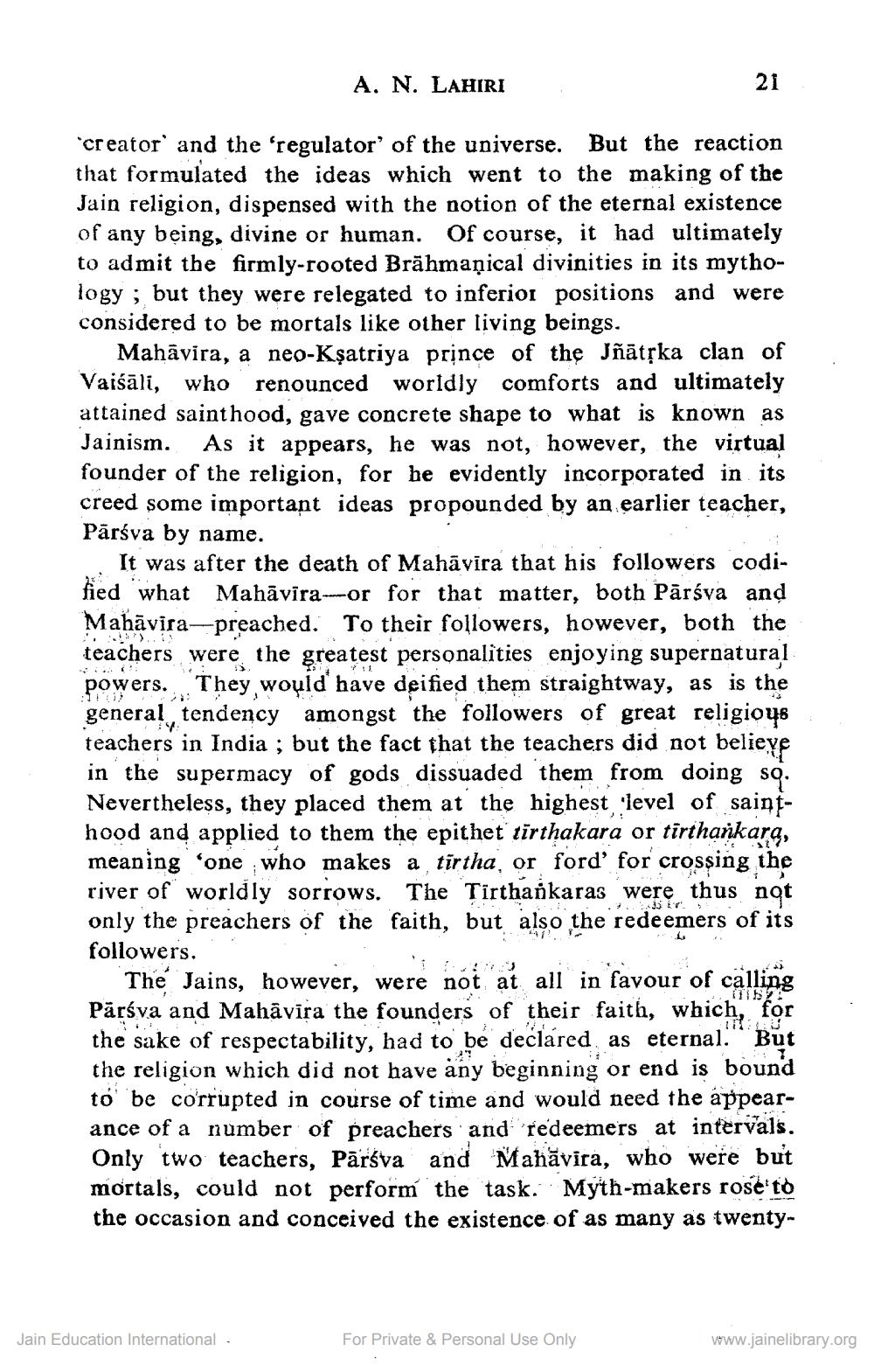________________
A. N. LAHIRI
21
.
8
)
creator and the 'regulator of the universe. But the reaction that formulated the ideas which went to the making of the Jain religion, dispensed with the notion of the eternal existence of any being, divine or human. Of course, it had ultimately to admit the firmly-rooted Brāhmaṇical divinities in its mythology ; but they were relegated to inferior positions and were considered to be mortals like other living beings.
Mahāvira, a neo-Ksatriya prince of the jñātska clan of Vaiśāli, who renounced worldly comforts and ultimately attained sainthood, gave concrete shape to what is known as Jainism. As it appears, he was not, however, the virtual founder of the religion, for he evidently incorporated in its creed some important ideas propounded by an earlier teacher, Pārsva by name.
It was after the death of Mahāvīra that his followers codified what Mahāvīra-or for that matter, both Pārśva and Mahāvira--preached. To their followers, however, both the teachers were the greatest personalities enjoying supernatural powers. They would have deified them straightway, as is the general tendency amongst the followers of great religious teachers in India ; but the fact that the teachers did not believe in the supermacy of gods dissuaded them from doing so. Nevertheless, they placed them at the highest level of sainthood and applied to them the epithet tirthakara or tirthankarą, meaning 'one who makes a tirtha or ford' for crossing the river of worldly sorrows. The Tīrthankaras were thus not only the preachers of the faith, but also the redeemers of its followers.
The Jains, however, were not at all in favour of calling Pārśva and Mahāvīra the founders of their faith, which, "for the sake of respectability, had to be declared as eternal." But the religion which did not have any beginning or end is bound to be corrupted in course of time and would need the appearance of a number of preachers and redeemers at intervals. Only two teachers, Pārsva and Mahāvira, who were but mortals, could not perform the task. Myth-makers rose to the occasion and conceived the existence of as many as twenty
:11
Jain Education International -
For Private & Personal Use Only
www.jainelibrary.org




